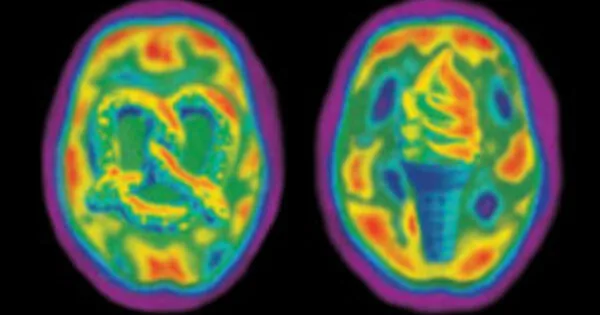There is evidence to suggest that traffic pollution can impair brain function. Studies have shown that exposure to traffic-related air pollution is associated with cognitive deficits, including decreased attention, impaired memory, and reduced ability to think abstractly.
Air pollution from traffic contains a variety of harmful particles, including particulate matter (PM), nitrogen oxides (NOx), and volatile organic compounds (VOCs), which can penetrate the bloodstream and affect the brain. These pollutants have been linked to inflammation in the brain, oxidative stress, and damage to the blood-brain barrier, all of which can impair cognitive function.
A new study has shown that common levels of traffic pollution can impair human brain function in only a matter of hours. The study was the first to demonstrate, in a controlled experiment using functional magnetic resonance imaging (fMRI), that diesel exhaust interferes with the ability of different areas of the human brain to interact and communicate with one another.
According to a new study conducted by researchers at the University of British Columbia and the University of Victoria, common levels of traffic pollution can impair human brain function in a matter of hours.
The findings, published in the journal Environmental Health, show that just two hours of diesel exhaust exposure causes a decrease in the brain’s functional connectivity – a measure of how well the brain works. The study provides the first controlled experiment evidence in humans of altered brain network connectivity caused by air pollution.
We know that altered functional connectivity in the DMN has been associated with reduced cognitive performance and symptoms of depression, so it’s concerning to see traffic pollution interrupting these same networks.
Dr. Jodie Gawryluk
“For many decades, scientists believed that the brain was immune to the harmful effects of air pollution,” said senior study author Dr. Chris Carlsten, professor and head of respiratory medicine at UBC and Canada Research Chair in occupational and environmental lung disease. “This study, the first of its kind in the world, adds to the body of evidence supporting a link between air pollution and cognition.”
The researchers conducted the study by briefly exposing 25 healthy adults to diesel exhaust and filtered air at different times in a laboratory setting. Using functional magnetic resonance imaging, brain activity was measured before and after each exposure (fMRI).
The researchers looked at changes in the brain’s default mode network (DMN), which is a network of interconnected brain regions that is important for memory and internal thought. The fMRI revealed that participants had decreased functional connectivity in many areas of the DMN after being exposed to diesel exhaust versus filtered air.
“We know that altered functional connectivity in the DMN has been associated with reduced cognitive performance and symptoms of depression, so it’s concerning to see traffic pollution interrupting these same networks,” said Dr. Jodie Gawryluk, a psychology professor at the University of Victoria and the study’s first author. “While more research is needed to fully understand the functional impacts of these changes, it’s possible that they may impair people’s thinking or ability to work.”

Taking steps to protect yourself
Notably, the changes in the brain were only temporary, and after the exposure, participants’ connectivity returned to normal. Dr. Carlsten speculated that where exposure is continuous, the effects could be long lasting. He advised people to be aware of the air they breathe and to take precautions to limit their exposure to potentially harmful air pollutants such as car exhaust.
“People should think twice the next time they’re stuck in traffic with their windows down,” Dr. Carlsten said. “Make sure your car’s air filter is in good working order, and if you’re walking or biking down a busy street, consider taking a less congested route.”
While the current study only looked at the cognitive effects of traffic-related pollution, Dr. Carlsten believes that other combustion products are also a concern.
“Air pollution is now recognized as the most serious environmental threat to human health, and we are increasingly seeing the consequences across all major organ systems,” Dr. Carlsten says. “I expect we would see similar impacts on the brain from exposure to other air pollutants, like forest fire smoke. With the increasing prevalence of neurocognitive disorders, public health officials and policymakers must take this into account.”
The research was carried out at UBC’s Air Pollution Exposure Laboratory, which is located at Vancouver General Hospital and is equipped with a cutting-edge exposure booth that can simulate what it’s like to breathe a variety of air pollutants. The researchers used freshly-generated exhaust that was diluted and aged to reflect real-world conditions in this study, which was carefully designed and approved for safety.
















